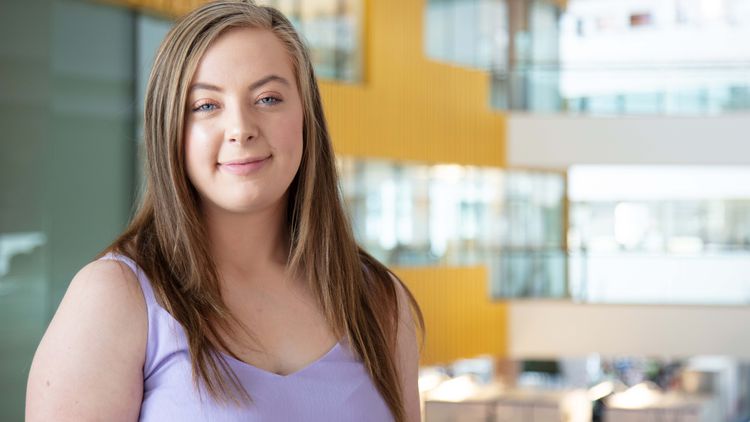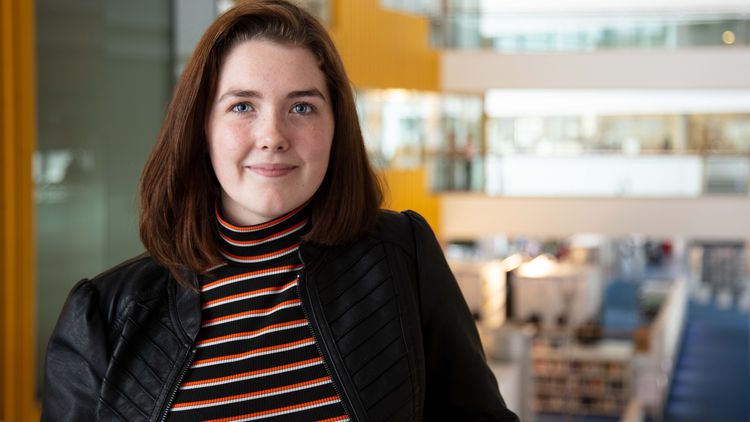
BA (Hons) Working with Children and Families
The Working with Children and Families course provides the knowledge and skills you need to work with children and families in a range of settings.
You’ll examine issues that influence the lives and well-being of children and families in today’s society. Your studies will cover a range of services, systems, policies and work practices that support children and families. To reflect the reality of the workplace, you’ll explore multi-agency working and understand the roles of different professionals in education, youth, community and social care.
A key feature of the Working with Children and Families course is attending a work placement. Alongside your academic studies, this allows you to see how theory, policy and practice relate to each other, and will prepare you for a range of career opportunities.
Career paths usually include work in schools, children’s charities, integrated children’s centres, and social care settings, as well as postgraduate study in education, youth & community work or social work.
| UCAS Code | Study Mode
2024 |
Duration | Start Date | Campus | Campus Code |
|---|---|---|---|---|---|
| C4N7 | Full-time | 3 Years | September | Newport City | C |
| UCAS Code | Study Mode
2025 |
Duration | Start Date | Campus | Campus Code |
|---|---|---|---|---|---|
| C4N7 | Full-time | 3 Years | September | Newport City | C |
Throughout the Working with Children and Families course you will study key debates on theories of child development and childhood, which will reflect the changing agenda in this sector. You will explore children’s rights and how these are incorporated into policy and practice in England and Wales, as well as international perspectives and the fundamentals of social pedagogy.
Your studies will help you understand the role of professionals in safeguarding children and young people, as well as equality and diversity, and services that support children and families. You will also develop an understanding of leadership and collaborative approaches in theory and practice, as well as having a chance to research in an area of interest.
You will also have the chance to develop your professional skills through teaching and work placements, which will allow you the opportunity to focus on your future career choice and develop your understanding of a range of contexts.
As well as integrated work experience, you will have further opportunities to improve your knowledge and skills. These include additional opportunities to complete First Aid and Safeguarding qualifications.
Year One: Working with Children and Families Degree
- Safeguarding Children and Young People (20 credits)
- Youth and Community Work and Social Change (20 credits)
- Adolescence and Wellbeing: Identifying and Supporting Developmental Transitions (20 credits)
- Professional Values and Ethics in Youth and Community Work (20 credits)
- Youth Work in Action: Role of Youth and Community Worker 1 (20 credits)
- Youth Work in Action: Role of Youth and Community Worker 2 (20 credits)
Year Two: Working with Children and Families Degree
- Applied Practice 1 (40 credits)
- Safeguarding Children and Young People (20 credits)
- Inclusion, Equality and Diversity (20 credits)
- Researching with Children and Young People (20 credits)
- Children, Families and the Law (20 credits)
Year Three: Working with Children and Families Degree
- Dissertation (40 credits)
- Applied Practice 2 (40 credits)
- Child and Adolescent Mental Health (20 credits)
- Leading, Managing and Collaboration (20 credits)
Teaching
You will learn through a combination of work based learning, placements, lectures, seminars, workshops, external visits, directed study and independent study. The module teaching seeks to support the professional, work based aspect of the course and teaching frequently includes group work, resource creation, as well as case study work to support application into practice.
Assessment
You will be assessed through a combination of essays, case studies, project reports, in-class exercises, online tests, posters, preparing resources and presentations. Assessments aim to provide you with skills you can apply in practice alongside key academic skills.
Placements
Work placements are a key feature of the Working with Children and Families degree. You will begin your placements in year one and continue these throughout the degree, becoming longer and more involved as you progress.
The placements allow you the opportunity to tailor your experiences to support your future career plans by giving you the choice to experience a diverse range of services or to follow a specific route.
These experiences will give you first-hand experiences in the world of work, boosting your CV and developing key networks within the sector.
Facilities
Newport City is a modern campus with up to date classrooms and facilities, which include access to a range of computer and IT resources, as well as an extensive library service. Learning resources include iPads and a wide selection of storybooks and toys. There is also access to outdoor spaces as well as an outdoor learning resource area.
Lecturers
We regularly revalidate courses for quality assurance and enhancement
At USW, we regularly review our courses in response to changing patterns of employment and skills demand to ensure we offer learning designed to reflect today’s student needs and tomorrow’s employer demands.
If during a review process course content is significantly changed, we’ll write to inform you and talk you through the changes for the coming year. But whatever the outcome, we aim to equip our students with the skillset and the mindset to succeed whatever tomorrow may bring. Your future, future-proofed.
Contextual offers
We may make you a lower offer based on a range of factors, including your background (where you live and the school or college that you attended for example), your experiences and individual circumstances (as a care leaver, for example). This is referred to as a contextual offer and we receive data from UCAS to support us in making these decisions. USW prides itself on its student experience and we support our students to achieve their goals and become a successful graduate. This approach helps us to support students who have the potential to succeed and who may have faced barriers that make it more difficult to access university. Here is a link to our Contextual Admissions Policy.
Other qualifications and experience
We can also consider combinations of qualifications and other qualifications not listed here may also be acceptable. We can sometimes consider credits achieved at other universities and your work/life experience through an assessment of prior learning. This may be for year one entry, or advanced entry to year two or three of a course where this is possible.
To find out which qualifications have tariff points, please refer to the UCAS tariff calculator.
If you need more help or information or would like to speak to our friendly admissions team, please contact us here
Additional Requirements:
An Enhanced Disclosure and Barring Service (DBS) check on the Child & Adult Workforce and Child and Adult Barring Lists and subscription to the DBS Update Service. (Overseas equivalent required for non-uk applicants)
Typical A-Level Offer
CCD to exclude General Studies (this is equivalent to 88 UCAS tariff points).
Typical Welsh BACC Offer
Pass the Advanced Welsh Baccalaureate Diploma with Grade C/D in the Skills Challenge Certificate and CD - CC at A Level to exclude General Studies (this is equivalent to 88 UCAS tariff points).
Typical BTEC Offer
BTEC Extended Diploma Merit Merit Merit (this is equivalent to 96 UCAS tariff points).
Typical Access to HE Offer
Pass the Access to HE Diploma with a minimum of 88 UCAS tariff points
Additional Requirements
GCSEs: The University normally requires a minimum 5 GCSEs including Mathematics/Numeracy and English at Grade C or Grade 4 or above, or their equivalent, but consideration is given to individual circumstances.
International Entry Requirements
We also welcome international applications with equivalent qualifications. Please visit the country specific pages on our international website for exact details.
English Requirements
In general, international applicants will need to have achieved an overall IELTS grade of 6.0 with a minimum score of 5.5 in each component.
However, if you have previously studied through the medium of English IELTS might not be required, but please visit the country specific page on our international website for exact details. If your country is not featured please contact us.
Full-time fees are per year. Part-time fees are per 20 credits. Once enrolled, the fee will remain at the same rate throughout the duration of your study on this course
August 2024 - July 2025 Fees
Full-time UK: £9000
Full-time International: £15260
August 2025 - July 2026 Fees
Full-time UK: TBC
Full-time International: TBC
Student Perks
At the University of South Wales, you’re investing in so much more than a degree. We strive to provide our students with the best possible experience, no matter what you chose to study. Whether it’s access to top of the range mac books and PCs, state-of-the-art facilities packed with industry-leading equipment and software, masterclasses and events led by industry experts, or a wide range of clubs and societies to meet likeminded people, better tomorrows start with extra perks.
Each course also has their own unique student benefits to prepare you for the real word, and details of these can be found on our course pages. From global field trips, integrated work experience and free course-related resources, to funded initiatives, projects working with real employers, and opportunities for extra qualifications and accreditations - at USW your future, is future-proofed.
Click here to learn more about student perks at USW.
Additional Costs
As a student of USW, you’ll have access to lots of free resources to support your study and learning, such as textbooks, publications, online journals, laptops, and plenty of remote-access resources. Whilst in most cases these resources are more than sufficient in supporting you with completing your course, additional costs, both obligatory and optional, may be required or requested for the likes of travel, memberships, experience days, stationery, printing, or equipment.
* Obligatory
| Item | Cost | |
|---|---|---|
| DBS * | £55.42 | This fee includes £40 for the enhanced DBS certificate, the Post Office Administration fee and the online administration fee. |
| DBS Updating Service * | £13 | Subscription required for each year of the course for a yearly fee of £13. Please note the service has to be joined within 30 days of receipt of your enhanced DBS certificate. |
| Other: Resources required to support study | £100 | Years 1, 2 & 3. A range of books are available in the university library , but students often purchase key texts. |
| Other: Travel to Placement (Compulsory) * | £0 - £300 | Years 1, 2 & 3 - Cost is dependent on placement location. |
Funding
Funding to help pay for (or cover) course tuition fees and living costs
Whilst you’re studying, you’ll have two main financial obligations – tuition fees and living costs. There’s lots of financial help available from the University of South Wales and external funding sources, that may provide loans (which have to be paid back) and grants, scholarships and bursaries (that don't).
To learn about course fees, funding options, and to see if you are eligible for financial support, visit our Fees and Funding pages.
UK students
Apply via UCAS if you are a UK residing applicant, applying for year one of a full-time undergraduate degree, Foundation Year, Foundation Degree or HND and you have not applied through UCAS before. If you are applying to study part-time, to top up your Foundation Degree or HND, or to transfer to USW from another institution, please apply directly.
International and EU students
Apply directly to the University if you live outside the UK.
Career paths typically include opportunities to work in schools, children’s charities, integrated children’s centres, and social care settings. Additionally graduates may select to progress onto postgraduate studies in education (PGCE) or social work.
Our Careers and Employability Service
As a USW student, you will have access to advice from the Careers and Employability Service throughout your studies and after you graduate.
This includes: one-to-one appointments from faculty based Career Advisers, in person, over the phone or even on Skype and through email via the "Ask a Question" service. We also have extensive online resources for help with considering your career options and presenting yourself well to employers. Resources include psychometric tests, career assessments, a CV builder, interview simulator and application help. Our employer database has over 2,000 registered employers targeting USW students, you can receive weekly email alerts for jobs.
Our Careers service has dedicated teams: A central work experience team to help you find relevant placements; an employability development team which includes an employability programme called Grad Edge; and an Enterprise team focused on new business ideas and entrepreneurship.







